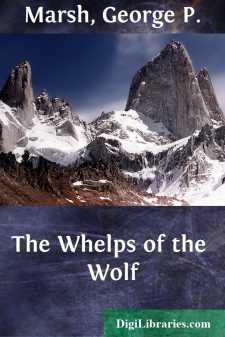Categories
- Antiques & Collectibles 13
- Architecture 36
- Art 48
- Bibles 22
- Biography & Autobiography 813
- Body, Mind & Spirit 142
- Business & Economics 28
- Children's Books 15
- Children's Fiction 12
- Computers 4
- Cooking 94
- Crafts & Hobbies 4
- Drama 346
- Education 46
- Family & Relationships 57
- Fiction 11828
- Games 19
- Gardening 17
- Health & Fitness 34
- History 1377
- House & Home 1
- Humor 147
- Juvenile Fiction 1873
- Juvenile Nonfiction 202
- Language Arts & Disciplines 88
- Law 16
- Literary Collections 686
- Literary Criticism 179
- Mathematics 13
- Medical 41
- Music 40
- Nature 179
- Non-Classifiable 1768
- Performing Arts 7
- Periodicals 1453
- Philosophy 64
- Photography 2
- Poetry 896
- Political Science 203
- Psychology 42
- Reference 154
- Religion 513
- Science 126
- Self-Help 84
- Social Science 81
- Sports & Recreation 34
- Study Aids 3
- Technology & Engineering 59
- Transportation 23
- Travel 463
- True Crime 29
The Earth as Modified by Human Action
by: George P. Marsh
Description:
Excerpt
CHAPTER 1.
INTRODUCTORY.
Natural Advantages of the Territory of the Roman Empire.—Physical Decay
of that Territory.—Causes of the Decay.—Reaction of Man on Nature.—
Observation of Nature.—Uncertainty of Our Historical Knowledge of
Ancient Climates.—Uncertainty of Modern Meteorology.—Stability of
Nature.—Formation of Bogs—Natural Conditions Favorable to Geographical
Change.—Destructiveness of Man—Human and Brute Action
Compared.—Limits of Human Power.—Importance of Physical Conservation
and Restoration—Uncertainty as to Effects of Human Action.
Natural Advantages of the Territory of the Roman Empire.
The Roman Empire, at the period of its greatest expansion, comprised the regions of the earth most distinguished by a happy combination of physical conditions. The provinces bordering on the principal and the secondary basins of the Mediterranean enjoyed in healthfulness and equability of climate, in fertility of soil, in variety of vegetable and mineral products, and in natural facilities for the transportation and distribution of exchangeable commodities, advantages which have not been possessed in any equal degree by any territory of like extent in the Old World or the New. The abundance of the land and of the waters adequately supplied every material want, ministered liberally to every sensuous enjoyment. Gold and silver, indeed, were not found in the profusion which has proved so baneful to the industry of lands richer in veins of the precious metals; but mines and river beds yielded them in the spare measure most favorable to stability of value in the medium of exchange, and, consequently, to the regularity of commercial transactions. The ornaments of the barbaric pride of the East, the pearl, the ruby, the sapphire, and the diamond—though not unknown to the luxury of a people whose conquests and whose wealth commanded whatever the habitable world could contribute to augment the material splendor of their social life—were scarcely native to the territory of the empire; but the comparative rarity of these gems in Europe, at somewhat earlier periods, was, perhaps, the very circumstance that led the cunning artists of classic antiquity to enrich softer stones with engravings, which invest the common onyx and cornelian with a worth surpassing, in cultivated eyes, the lustre of the most brilliant oriental jewels.
Of these manifold blessings the temperature of the air, the distribution of the rains, the relative disposition of land and water, the plenty of the sea, the composition of the soil, and the raw material of the primitive arts, were wholly gratuitous gifts. Yet the spontaneous nature of Europe, of Western Asia, of Libya, neither fed nor clothed the civilized inhabitants of those provinces. The luxuriant harvests of cereals that waved on every field from the shores of the Rhine to the banks of the Nile, the vines that festooned the hillsides of Syria, of Italy and of Greece, the olives of Spain, the fruits of the gardens of the Hesperides, the domestic quadrupeds and fowls known in ancient rural husbandry—all these were original products of foreign climes, naturalized in new homes, and gradually ennobled by the art of man, while centuries of persevering labor were expelling the wild vegetation, and fitting the earth for the production of more generous growths....



